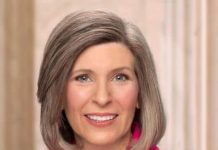Currently the left, progressive or liberal view predominates on our public university campuses and students get little or no exposure to the conservative view. Furthermore left-leaning faculty are reluctant to expose students to competing perspectives. Administrators are risk averse and prefer campus tranquility even at the cost of avoiding normal debate. This doesn’t look likely to improve in the future if no action is taken.
College is the place where students learn and shape their beliefs as they have opportunity to encounter and examine different viewpoints. This is essential to “academic freedom” which colleges all so proudly say they provide and “diversity” which they all say they embrace. Administrators, either dictating which beliefs are permissible or unwilling to take action to ensure students receive exposure to diverse viewpoints is completely contrary to the value of “academic freedom” and “diversity” which are supposed to be part of the mission of our public universities.
A 2019 survey of 466 colleges by the Foundation for Individual Rights in Education (FIRE) found that 89% had speech codes that ran afoul of the First Amendment. Patrick Garry, University of South Dakota law professor and author of the South Carolina Law Review article “When Legislatures Become the Ally of Academic Freedom” cites a study published in Econ Journal Watch that found Democrats outnumber Republicans 11.5 to 1 on higher education faculties – and that the ratio gets more dramatically skewed the younger the faculty; in departments “where politics may be more relevant, such as history”; and the greater the prestige of the university. More than a third of the 51 colleges surveyed in the study reported no Republicans on faculty at all.
Restoring a culture on campus of respectful discussion and debate of diverse viewpoints, which includes the conservative viewpoint, will bolster civility, safeguard liberty, strengthen citizenship, and deepen knowledge. Part of getting a good education is to get exposure to a wide variety of viewpoints, which currently happens too little.
The federal government and states are beginning to address this issue of left-leaning bias on university campuses. Just recently, President Trump said he is asking the Treasury Department to look into the tax-exempt status and funding of universities engaging in leftist indoctrination. And in March of last year, the president issued an executive order making federal research funding contingent on universities having adequate free speech protections.
Iowa became one of a number of states in 2019 to enact legislation protecting First Amendment rights on campus. Our law provided common sense protections for the 1st Amendment rights of students and student groups on our Regents university campuses. This clarifies already existing constitutional rights and gives these universities clear guidelines for respecting the rights of students and student groups. Our law:
- Requires Regents universities to allow 1st Amendment rights of intellectual freedom and free expression
- Requires that they not shield students from allowed speech even though they disagree or find it offensive
- Requires them to encourage diversity of thought and respectful exercise of the 1st Amendment
- Requires them to allow students to assemble and discuss issues subject to reasonable time, place, and manner restrictions
- Requires them to allow their public forum open to any invited speaker and any lawful expressive activity, thus making the university itself a “free speech” zone as it should be instead of confining free speech to a certain area
- Requires them to allow any lawful communications not disruptive of the functioning of the college and subject to reasonable time, place, and manner restrictions
- Requires them to not deny benefits or privileges available to student groups based on the group’s beliefs or based on the group’s requirement that their leadership adhere to their beliefs
With these 1st Amendment protections as a foundation, efforts are being made currently to build on them and to go further: legislation which would increase “intellectual diversity” at public universities. Under intellectual diversity laws, not only must dissenting views be tolerated, but college administrations are required to actively take steps to ensure that students are exposed to competing ideological, cultural and political viewpoints. This can be done while respecting academic freedom and without infringing on the autonomy of the classroom. Universities can be required to invite speakers having different viewpoints, especially those poorly represented on campus. This could take the form of a lecture, a debate, or a panel discussion on controversial public policy, cultural, philosophical, or religious issues.
Garry concludes that “political indoctrination is not a legitimate academic function and hence is undeserving of special constitutional protection. … Perhaps, as the South Dakota legislature has recognized (South Dakota’s legislature passed a new campus intellectual diversity law), universities may now have to be put under a kind of formalized public review process regarding their actions concerning free speech and academic freedom.”
The legislative push for free speech and intellectual diversity on campus reflects “hunger and a momentum among the American people for reform,” Garry said, at a time when the disappointing and ugly results of academic radicalism are already widely evident in the culture at large.












